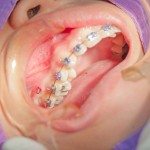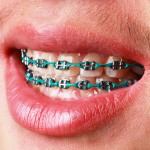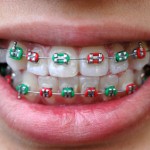
This review of mini-screws for orthodontic anchorage included 7 small RCTs of variable quality with the findings suggesting that mini-screws are more effective than conventional approaches
[read the full story...]
This review of mini-screws for orthodontic anchorage included 7 small RCTs of variable quality with the findings suggesting that mini-screws are more effective than conventional approaches
[read the full story...]
27 studies were included in this review of the failure rates of palatal implants & mini-screws for supplementing anchorage during orthodontic treatment. Failure rates were low and similar for both implants & mini-screws.
[read the full story...]
8 small studies were included in this review comparing en masse retraction and two-step retraction for orthodontic space closure. While both were effective the en masse/miniscrew combination demonstrated a small statistically significant benefit in terms of incisor retraction and anchorage preservation.
[read the full story...]
14 studies, 7 of which were RCTs were included in this review of min-screw implants to prevent anchorage loss during orthodontic treatment. The findings suggest a small but clinically important reducing in anchorage with mini-screw use. However more high quality studies and information on adverse effects is needed.
[read the full story...]
Six studies were included in this review comparing the success rates of self-drilling and self-tapping mini-screws in orthodontic practice. The findings suggest no difference but the studies were small and of short duration and none of the included studies was a randomised trial so the findings should be interpreted cautiously.
[read the full story...]
This recent update of a Cochrane review considers the question as to whether surgical or conventional anchorage is more effective. Surgical anchorage was more effective but there is limited information on patient reported outcomes such as pain.
[read the full story...]
Yesterday (Dental Elf 13th Nov 2012) we looked at a systematic review assessing failure rates of mini-screw implants for orthodontic anchorage. Today we are looking at a review consider whether recommended maximum insertion torque values of 5 to 10 Ncm were associated with higher success rates of orthodontic mini-implants than those inserted with torque values [read the full story…]

Orthodontic mini-screw implants have become a popular method of providing anchorage reinforcement during orthodontic treatment. The aim of this review was to assess the failure rates for mini-screw implants used for orthodontic anchorage purposes and to identify any significant risk factors possibly affecting these failure rates. A wide range of databases (19 in all) were [read the full story…]